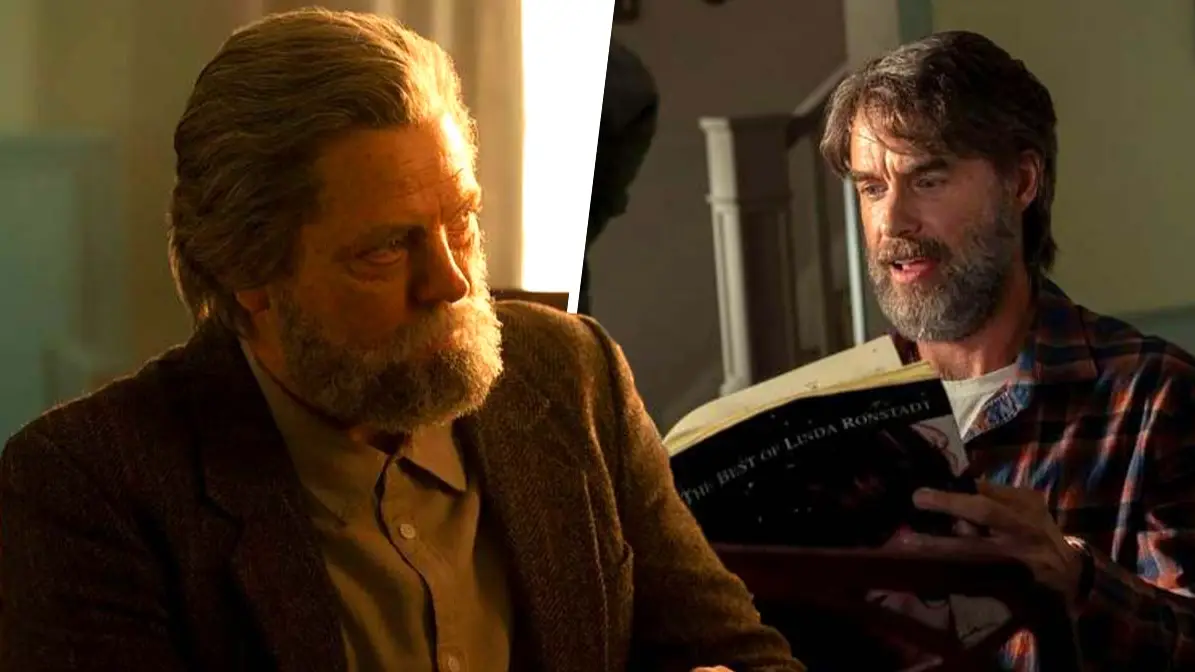
Spoiler warning: this article contains spoilers for the third episode of The Last of Us - proceed with caution.
I’m assuming that we’ve all been sufficiently heartbroken by The Last of Us’ third episode. How are we all faring? I personally can’t look at a strawberry without getting upset now.
‘Long, Long Time’ has certainly been the biggest departure from the game so far, but that’s by no means a bad thing - GAMINGbible’s Ewan wrote that it’s “one of the finest hours of TV so far this decade”, and I’m in complete agreement. Fans believe that Nick Offerman should be getting a whole array of awards for his stellar performance as Bill (although some are upset that the changes from the game mean that he and Ellie never meet in the show).
Take a look at what’s coming up next on The Last of Us below.
Advert
Anyway, I’m sure I’m not the only one who’s now unable to listen to Linda Ronstadt’s ‘Long Long Time’ without crying. The song played a huge part in Bill and Frank’s love story - it was the tune they sang together after their first meal, and it unsurprisingly has a tragic meaning, according to The Last of Us showrunner Craig Mazin. In an interview with IndieWire, Mazin revealed that he’d searched for an “incredibly sad song about yearning for love, and never getting love, and just making your peace with the fact that you will always be alone”. Needless to say, he found it.
“The intention was to show the arc of commitment. I’m in my 26th year of marriage, and middle-age love is a thing. And it’s a different thing than love in your 20s and new love. There’s something that gets kicked off by commitment over time,” he said. “It was important for me to show that the romance, however long it lasted, it didn’t last. And then it’s arguing. And then it’s bargaining. And then it’s realising what the other person does for you. And then it’s fear, and pulling these characters through the stages of life as I’ve been experiencing them and I’ve seen my wife’s parents experience and other friends experience.
“The whole idea was to hit the highlights of moments in your life where love means something different. In the end, Neil [Druckmann] said something really smart: ‘Even if a character doesn’t make it in our show, in this case, these guys had a happier ending than they did in the game.’”
Huh, someone must be cutting onions in here. How strange.
Topics: The Last Of Us, TV And Film